The 4 Most Common Causes Of Chimney Leaks
Here at Clean Sweep of Anne Arundel County, we take a proactive, calculated approach to chimney leak resolution, and we work to quickly locate water entry points through a process of elimination.
Here are the most common causes of chimney leaks:
(1) Missing Chimney Cap
— If you take a look at your chimney from the outside, you’ll notice that the chimney flue extends up past the chimney stack (or chase) itself. Because it extends up outside of the home, the flue needs some sort of protection against rain entry, which is exactly what the chimney cap is for. These metal covers are designed to fit over the flue and shield it against the elements.
But if the chimney cap isn’t perfectly fitted to the flue or it blows off during a strong storm, the flue is left open and vulnerable, and water has an easy passageway into the chimney itself.
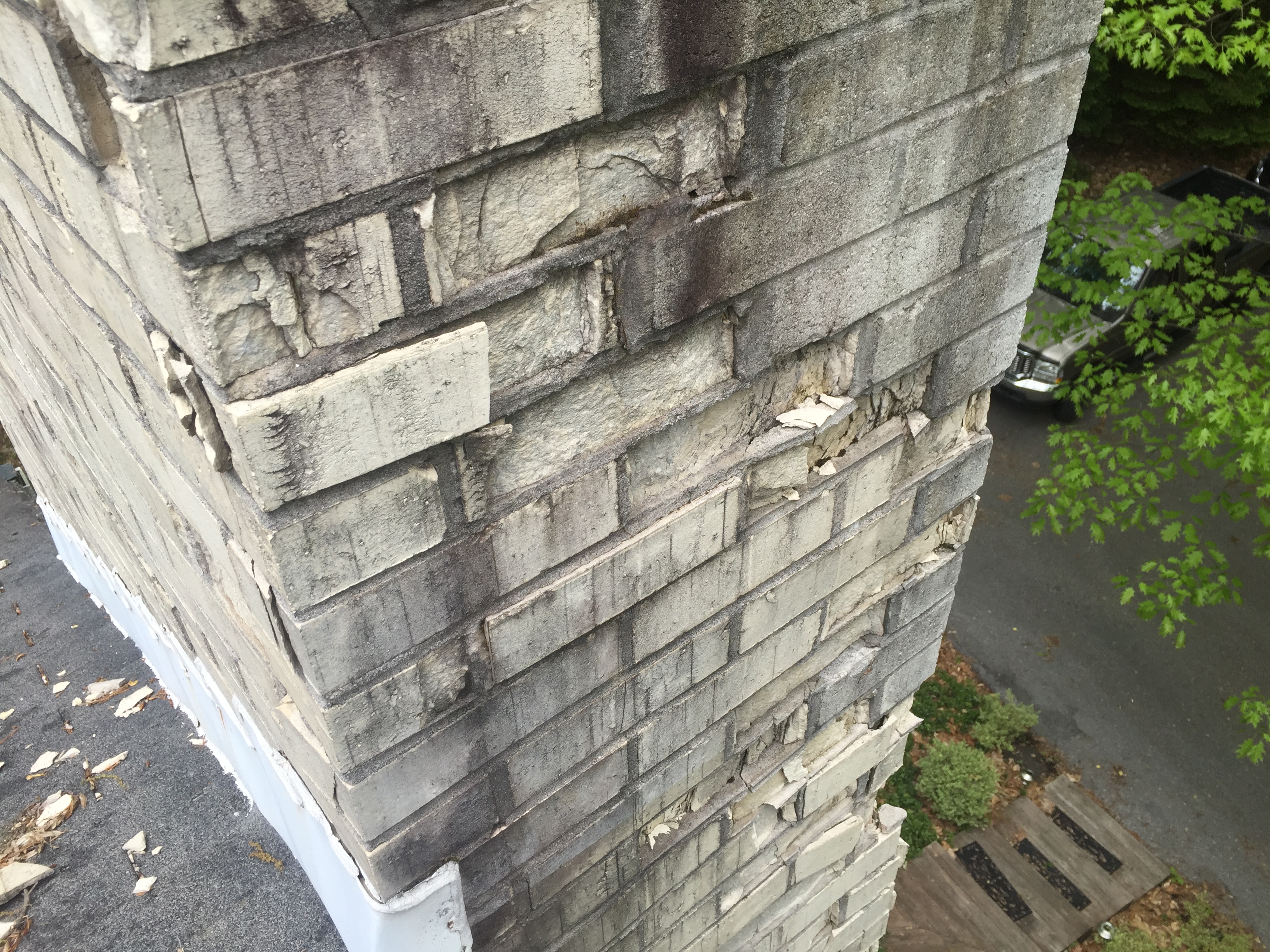
(2) Damaged Crown/Rusted Out Chase Cover
— At the top of your chimney stack, just below the chimney cap, is the crown or, if you have a prefabricated chimney, the chase cover. This important piece of the chimney system works to cover the chimney opening and keep water, snow, sleet, and other outside elements from getting into the chimney and the home. Unfortunately, water and age can damage the crown or chase cover, causing the crown to crack and crumble, and the chase cover to rust and corrode.
Once the damage starts, water will continue to work on the crown or chase cover until it makes its way down into the chimney.
(3) Deteriorating Or Damaged Brick/Mortar Joints
— You may not know it, but the brick and mortar that your masonry chimney is constructed of are porous materials, which means they naturally absorb and soak up water. The problem is, as temperatures change throughout the four seasons, moisture inside of the brick and mortar joints can freeze and thaw, constricting and expanding, and breaking up the masonry from the inside out. This is what causes brick to pop or spall and leads to cracks and receding mortar joints in the actual stack of your chimney. Damaged and deteriorating masonry will only soak up more and more water, and eventually, that water will make its way into your home.
(4) Missing/Damaged/Poorly Installed Flashing
— What about the area where your chimney exits the roof of your home? Well, this area is particularly vulnerable to leaks, which is why chimney flashing is so important in the fight against water. Flashing is really just a term we use for the metal sheets that are strategically layered and installed on the roof and the base of the chimney where the two meet. These sheets provide protection and encourage water to run down off of the vulnerable area, instead of entering the home.
Unfortunately, flashing is often done wrong or with low-quality metals that quickly rust and corrode. Strong winds can also lift flashing and allow water to access the home, leading to water stains on the ceiling around the fireplace and what appears to be a roof leak.
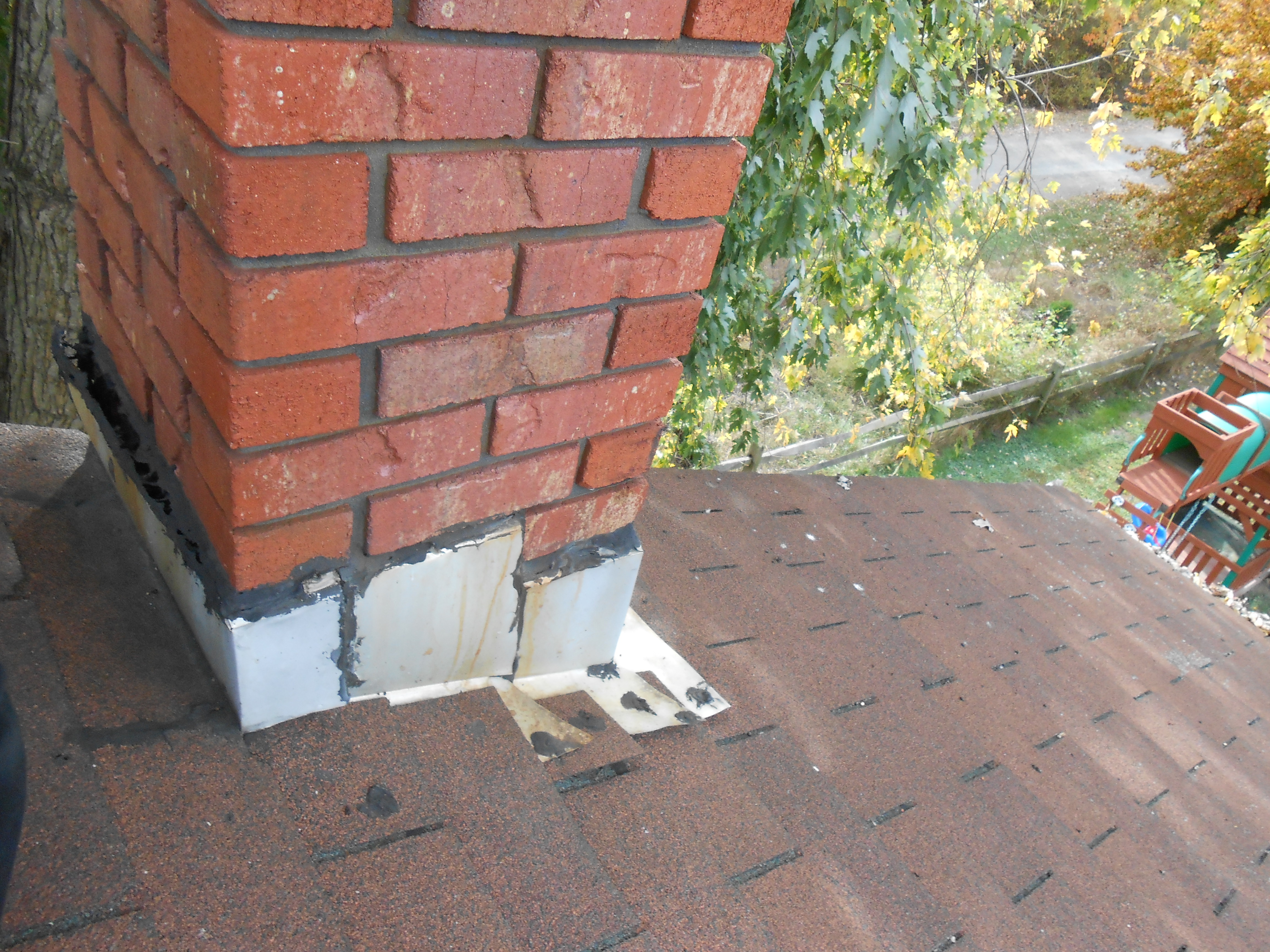
How To Prevent & Stop Chimney Leaks
Chimney leaks can be devastating, messy, and unsafe, and can cost you hundreds, even thousands, of dollars in repairs — especially if the leak isn’t detected early on.
But you don’t have to cross your fingers during every heavy rain or strong storm and wait for the inevitable to happen. There are preventative measures you can take to make sure your chimney stays high and dry.
- Schedule annual chimney inspections
- Install a quality chimney cap
- Make repairs when they’re small
- Invest in professional chimney waterproofing
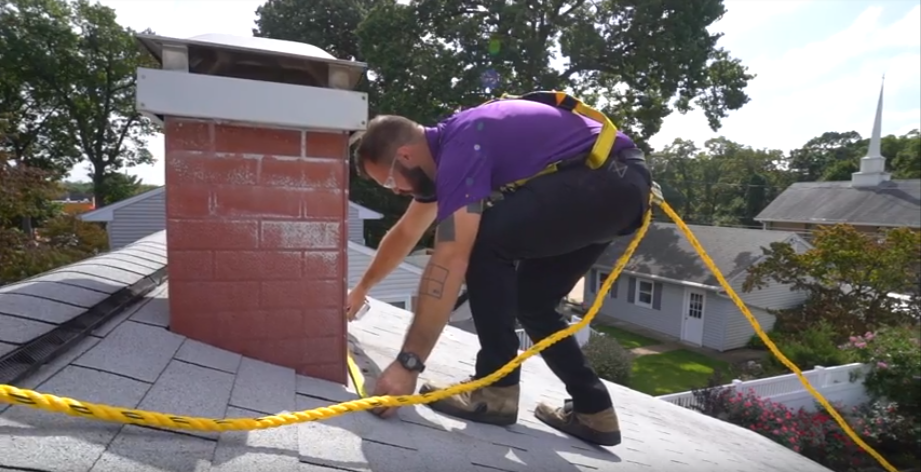
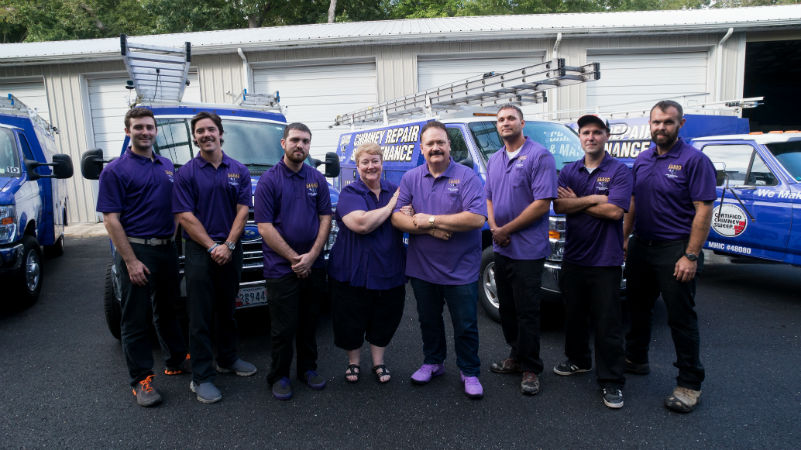
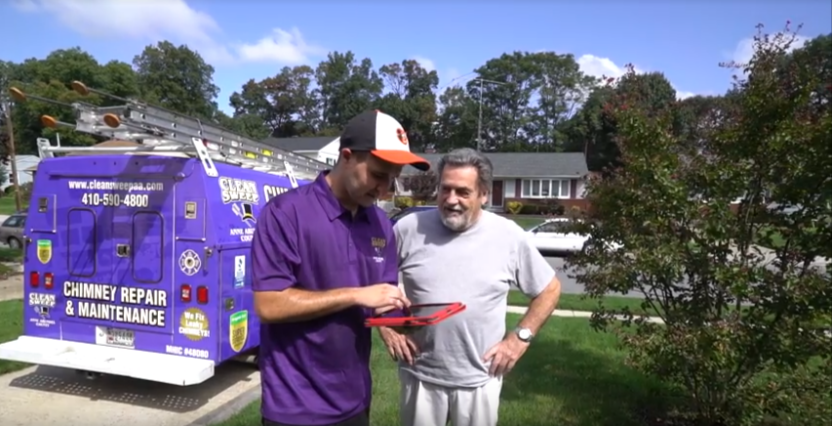
Why Trust Clean Sweep Of Anne Arundel County With Your Chimney Leak Repair & Prevention Work?
When it comes to caring for your home, you want someone who not only knows what they’re doing, but who is clean, trustworthy, and respectful of your property. Here at Clean Sweep of Anne Arundel County, we pride ourselves on being:
- Knowledgeable, Experienced & Trustworthy — We’ve been repairing, cleaning, inspecting, and protecting chimney systems since 1978, and all of our technicians are certified by the Chimney Safety Institute of America (CSIA). We follow the Industry Standard of Care, National Fire Protection Association 211 Codes & Standards, and the International Residential Code Inspection and Procedures, and utilize the latest tools and technology, as well as the industry’s best and most effective products and materials. Our years of experience and extensive knowledge of chimneys and water penetration has made us the company you can trust for chimney leak resolution and prevention.
- Clean & Respectful — Our team takes the time to lay down drop cloths, wear protective booties, and protect the home against mess and damage during our services. We treat each and every home and property with respect and put great effort into cleaning up so that the home looks beautiful when we’re done.
